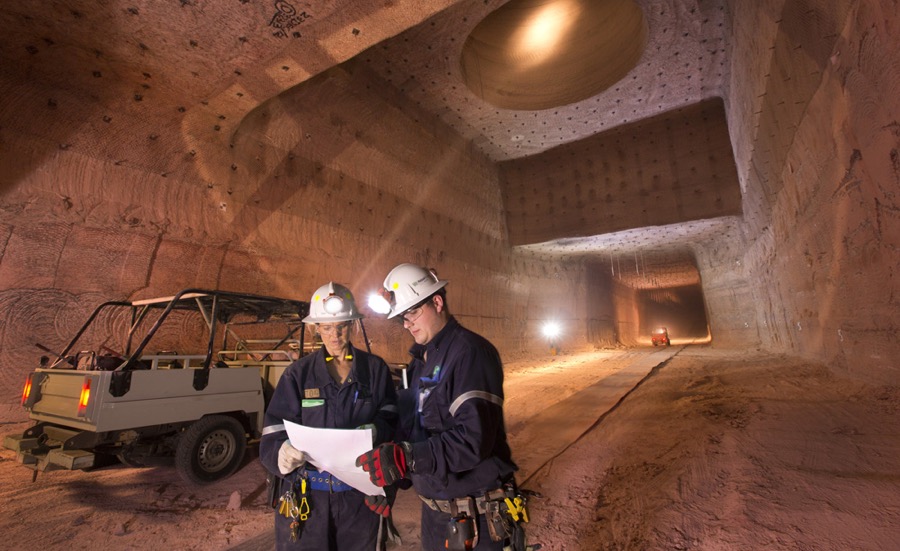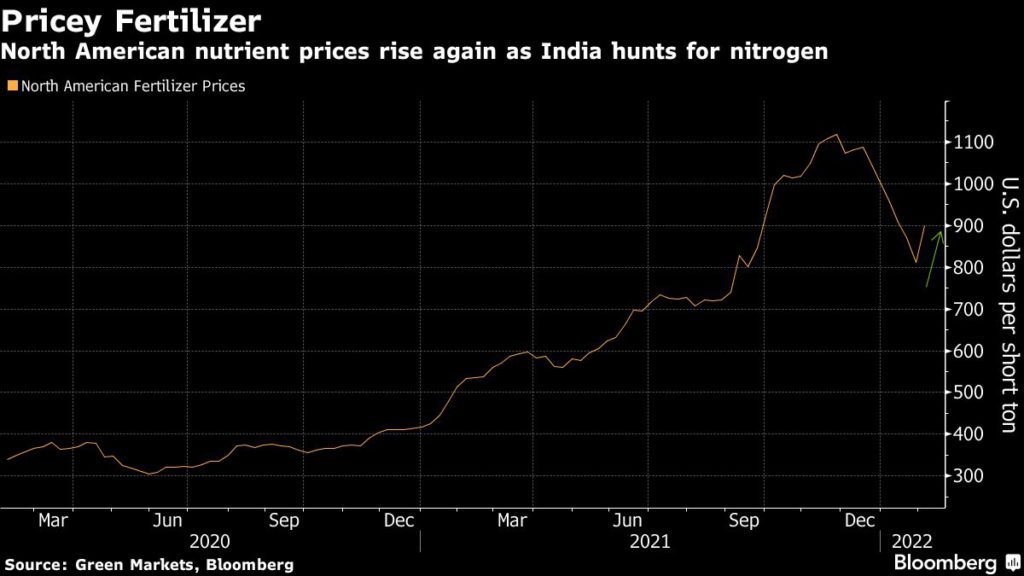Cecilia Jamasmie | March 2, 2022

Nutrien will boost potash production if it sees sustained supply problems in Russia and Belarus, the world’s second- and third-largest potash producing countries after Canada.(Image courtesy of Nutrien.)
Canada’s Nutrien (TSX, NYSE: NTR), the world’s largest potash miner, sees supply shortages of fertilizer getting worse due to the ongoing and escalating Russian invasion of Ukraine, two of the world’s top producers of crops food.

Interim chief executive Ken Seitz, who took the helm in January after the sudden resignation of Mayo Schmidt, told a BMO Capital conference that Russia’s invasion could result in prolonged disruptions to the global supply of potash and nitrogen crop nutrients.
The executive said Nutrien was ready to increase potash production if it sees sustained supply problems in Russia and Belarus, the world’s second- and third-largest potash producing countries after Canada.
Nutrien has said it expects to sell as much as 14.3 million tonnes of potash this year, its most ever, and Seitz said the company plans to run its plants “flat out” as it braces for exports interruptions and plant closures from Russia.
Global spot prices for potash hit a 13-year high of around $650 per tonne in December, after a spike in crop prices and a demand recovery this year. The record price for the fertilizer was set in 2008 when supply deals were signed at around $800 per tonne.

The invasion of Ukraine is also jeopardizing Russia’s nitrogen fertilizer exports and triggering sharp price increases of oil and natural gas, a key input in nitrogen production.
Europe relies on Russia for about a quarter of its oil and more than a third of its gas, with many of those shipments flowing through pipelines crossing Ukraine.
BMO fertilizer and chemicals analyst, Joel Jackson, said the bank sees European gas prices set to remain elevated, likely leading to further plant closures and further uncertainty around Russian supply.
“This could, in our view, see Nutrien reach the high end of 10.8 million tonnes to 11.3 million tonnes 2022 nitrogen volume guidance,” Jackson wrote.
Further disruptions could leave Europe freezing in the winter and curb the continent’s electricity production, forcing energy-intensive industries such as metals smelters and fertilizer makers to slow or shut their output.
Soaring prices
Prices of both oil and gas have skyrocketed in the past week, much higher than North American levels, as European governments are looking to wean their economies off Russian gas.
Brent crude — the global benchmark for oil prices — hit $113 a barrel on Wednesday, its highest since June 2014.
Nutrien shares have climbed 54% in the past year, as global demand for fertilizer already exceeded supply prior to this week’s geopolitical crisis.
The stock was 2.15% up in pre-market trading in New York on Wednesday at $86.76 a piece, leaving Nutrien with a market capitalization of C$59.53 billion ($47 billion).
(With files from Reuters, Bloomberg)
No comments:
Post a Comment